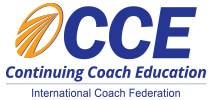
The backlash
A few months ago, while talking with an experienced coach, I made the comment that coaching is a form of education. That statement encountered an immediate backlash. According to this person, coaching and education are quite different. So, why do I claim that coaching is a form of education?
Education as category
As a category, education is very broad, and I believe that coaching finds its place within that broad category. But we first should understand what we mean by education.
Many people think of education as what happens in school or university. The teacher has the information and the student needs to acquire it. There is an agenda that is set by the education system and administered by the teacher. The student is an empty vessel waiting to be filled with knowledge. That idea may be very familiar to us, but it really isn’t a very good definition of what education is.
Learning and teaching
Education is informed by many big ideas from philosophy, psychology, sociology, and other disciplines. But these big ideas focus around two basic concepts – how do people learn and how can we help them learn? In other words, there are theories of learning and theories of teaching, which are far too complex to treat in detail in this article.
So, what can we take from them and how do they relate to coaching?
The learner’s agenda
First, there is nothing in education dictating that the teacher’s agenda is the only one that matters. This may be one manifestation of education, but it doesn’t have to be that way. Education can just as easily focus entirely on the learner’s agenda. This is a perfectly legitimate educational goal. We find this learner-centred-agenda outlined in the 11 Core Competencies of the International Coach Federation (ICF): Attends to the client and the client’s agenda and not to the coach’s agenda for the client. As I said, that ideal is a completely legitimate educational goal.
Second, education is not primarily about teaching. Education is primarily about learning. But education is also about how to help people learn. We should consider how learning can be facilitated and the role the coach plays in that process. There are many ways the coach can facilitate the clients’ learning.
Ways to facilitate learning
Asking the right questions at the right time. This is captured in the Core Competencies: Asks questions that evoke discovery, insight, commitment or action (e.g., those that challenge the client’s assumptions), and, Asks open-ended questions that create greater clarity, possibility or new learning.
Brainstorming with the client. Brainstorms and assists the client to define actions that will enable the client to demonstrate, practice, and deepen new learning. (ICF)
Experimental learning. Promotes active experimentation and self-discovery, where the client applies what has been discussed and learned during sessions immediately afterward in his/her work or life setting. (ICF)
Accessing different resources for learning. Helps the client identify and access different resources for learning (e.g., books, other professionals). (ICF)
Didactic teaching. Communicates broader perspectives to clients and inspires commitment to shift their viewpoints and find new possibilities for action. (ICF)
The role of coaching
Coaching is about helping clients learn about themselves and what they need to learn to move ahead in their lives. They need to learn to think new thoughts and learn to think in new ways. Coaches should support that learning by creating a space for that learning to occur – a space in which it becomes easier for the client to think new thoughts and to think in new ways. Sometimes that space will even include didactic teaching.
Coaching is about learning and creating a trusting and safe environment where that learning can happen. This is also what education is about. Therefore, I see coaching as a form of education – a distinct form that is different from, but also like other forms.
I think it is unwise to see coaching as separate from education because there is a huge amount of research in the education space that can help coaches become better coaches. I suggest they embrace relevant research and consider how it can be applied to coaching.
Written by Steve Barlow
Reach out to me if I can help you improve your coaching.